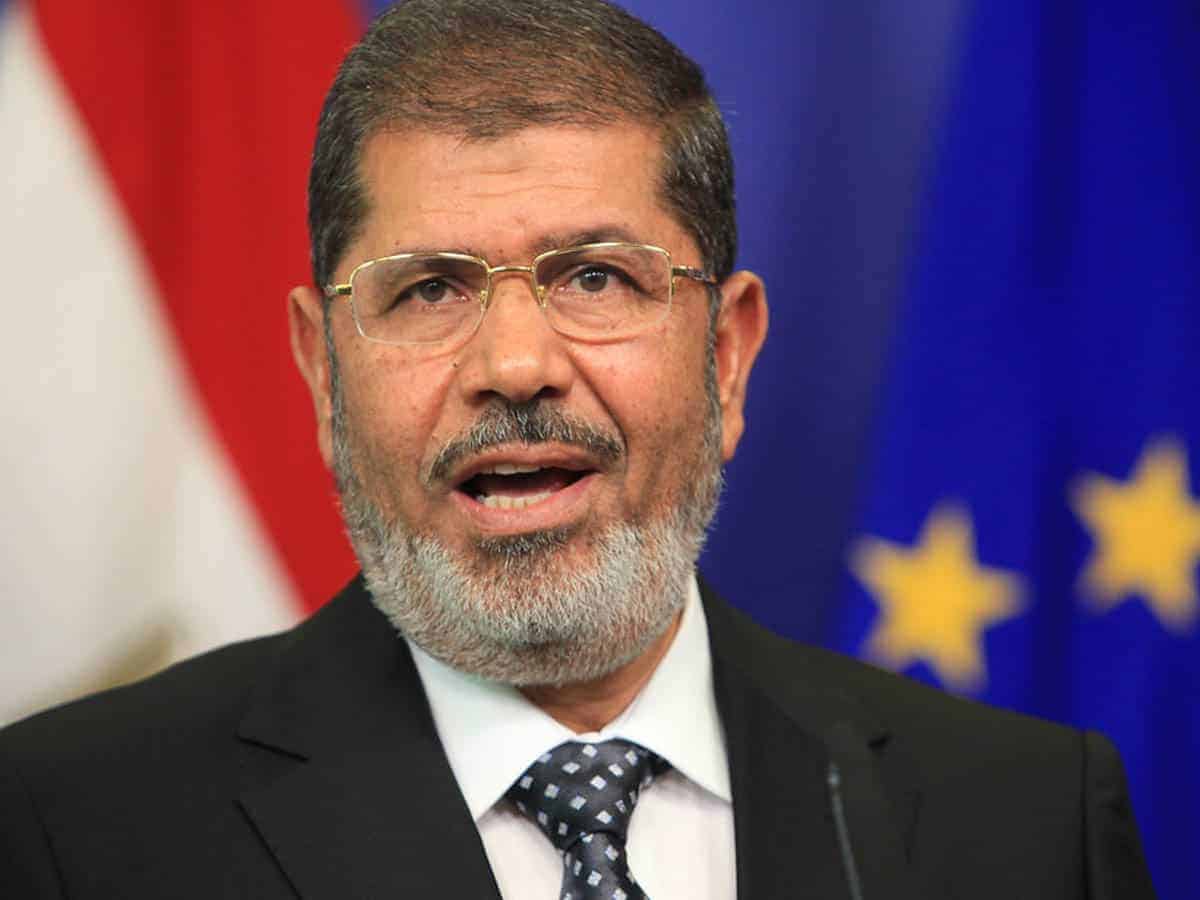Hyderabad: Exactly two years ago, the first and the only democratically elected Egyptian President ever, Mohammed Morsi, collapsed during the court hearing at Cairo’s Tora prison complex and his death was soon confirmed afterwards.
According to the Muslim Brotherhood’s spokesperson , Murad Ali, there were six allegations against the former president, including that of jailbreak, murder, spying for Qatar, spying for the Palestine-based Hamas, insulting the judiciary and involvement in terrorism which he said are all “fake charges”.
Mohammed Morsi, a former leader of the Muslim Brotherhood in Egypt, was ousted and imprisoned following a bloody coup in the year 2013, one year after being elected to power in 2012. He had come to the forefront as the head of the Freedom and Justice party and it became the largest party in the 2011-12 parliamentary elections in Egypt.
Natural death of murder?
The family and other human rights groups allege that he was poisoned and intentionally kept in inhumane conditions which would lead to his death. “Dr. Morsi was held in conditions that can only be described as brutal, particularly during his five-year detentions in the Tora prison complex”, said Agnes Callamard, Special Rapporteur on extrajudicial killings, together with the UN Working Group on Arbitrary Detention.
A group of independent UN human rights experts said on Friday that there was “credible evidence” that inadequate prison conditions in which former Egyptian President Mohammed Morsi was held may have “directly” led to his death in June and that thousands of other detainees may be at “severe risk.” They added in a press release that Dr. Morsi’s death after enduring those conditions could amount to state-sanctioned arbitrary killing.
Abdel-Monem Abdel-Maqsoud, the lawyer of the former president claimed that Morsi was poisoned. Other sources also say that Morsi was diabetic and had sugar, and was denied necessary medical help.
Legacy
In his last speech, days before he was overthrown, Morsi had famously said on July 3, 2013 “If the price for safeguarding legitimacy is my blood, then I am prepared to sacrifice my blood for the cause of safety and the legitimacy of this homeland.”
The then army chief and now president of Egypt, Abdel Fatah Sisi, approached Morsi and asked him to “step down” on his own. Morsi replied saying “Over my dead body” according to army sources, security and Muslim Brotherhood officials, who gave the Associated Press an account of Morsi’s final hours in the office.
According to Morsi’s lawyer, he said while in prison “I know secrets that won’t reveal for the sake of my country’s security.”
Controversies
Hated equally by both orthodox Wahhabis and Egyptian secularists, Mohammed Morsi invited much criticism for his statements made in public.
He and the Muslim Brotherhood are often criticized by orthodox Wahhabis for not being enough “religious” and some religious scholars even accuse them of being agents of the “freemasonry” and the US. Some orthodox schools also criticized them for not keeping beards long enough and not wearing traditional clothes.
The secularist Egyptians criticize Morsi and Muslim Brotherhood for calling to re-establish the Caliphate, reorganize the country’s socio-economic order on Islamic principles and make Quran the constitution of the country i.e., sharia law.
Mohammed Morsi’s statements gain much international attention when in of his speeches he said “The capital of the Caliphate and United Arab states is Jerusalem, God willing… the people want to implement God’s law” and in another place, he said “Quran is our constitution, The Prophet(PBUH) is our leader, Jihad in the way of God is our path and death in the way of Allah is our highest hope.”
Muslim Brotherhood
Mohammed Morsi was a member of the controversial Islamic revivalist movement, Muslim Brotherhood, founded in 1928 by Hasan Al Banna who famously started giving sermons in coffee shops to attract an educated sophisticated crowd to his movement.
The movement was declared a terrorist group by Egypt, Russia, UAE, and Saudi Arabia and suffered brutal crackdowns in all these countries.
On Monday, 12 Muslim Brotherhood leaders including two senior leaders were sentenced to death by an Egyptian court, and 31 others to life imprisonment.

